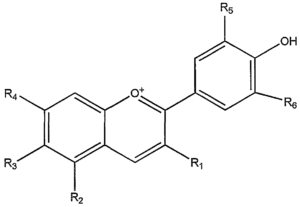What are the results of recent research on anthocyanins and Alzheimer’s disease?

This post highlights some of the recent research on anthocyanins and Alzheimer’s disease. Anthocyanins are the blue, red, and purple pigments of fruits and vegetables. They have antioxidant, anti-microbial, anti-inflammatory and anti-neurodegenerative activities. Berries are rich in anthocyanins, and they are good for the prevention of age-related diseases, such as neurodegeneration, arthritis and cardiovascular diseases.
Anthocyanins and Alzheimer’s disease
Alzheimer’s disease is a neurodegenerative disease with the characteristics of amyloid plaques formed by large deposits of beta-amyloid (Abeta) peptides in spaces between nerve cells, and neurofibrillary tangles formed by twisted fibers of tau proteins inside nerve cells. They block communication between nerve cells and cause them to die. The causes of Alzheimer’s disease are still elusive. They are a combination of genetics, lifestyle and environmental factors. Research shows that oxidative stress plays an important role of the development of Alzheimer’s disease. Imbalance between oxidants and antioxidants in the brain leads to oxidative stress. The excessive free radicals can enhance Abeta formation, and Abeta in turn can promote production of more free radicals. This vicious cycle will help propel the progression of Alzheimer’s disease. As a result, Abeta induces apoptosis (cell death) of brain cells.
There are many types of anthocyanins in berries, and they may protect brain cells under different mechanism. Some can even reverse the progression of Alzheimer’s disease. Anthocyanins are able to cross blood-brain barrier and slow down the progression of Alzheimer’s disease by inhibiting Abeta-induced apoptosis of brain cells and by reducing free radicals. These findings look promising.
Reference: